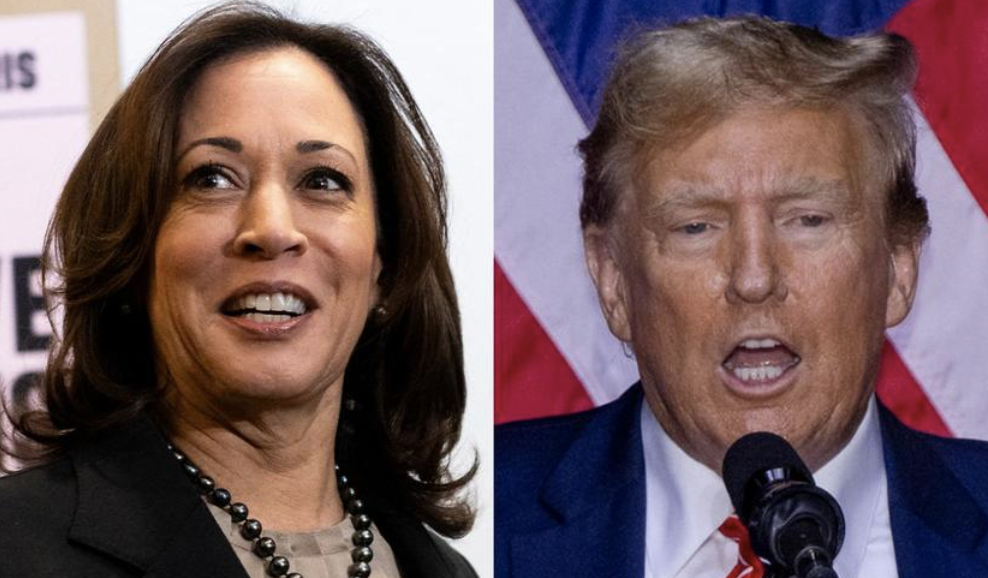Top Court In Swing State To Fast-Track Election Case That Could Benefit Harris

The Supreme Court in a key battleground state is moving quickly on an election case that could potentially favor VP Kamala Harris.
Republicans have accused the liberal-leaning Wisconsin Supreme Court of acting in favor of Harris’s presidential campaign by blocking a third-party candidate who might siphon votes away from her.
According to Legal Newsline, the Wisconsin Elections Commission had determined that Green Party candidate Jill Stein met the requirements to appear on the state’s ballot this year, based on her 2016 performance when she garnered over 31,000 votes. That same year, former President Donald Trump narrowly won Wisconsin by approximately 23,000 votes.
However, the Green Party was excluded from Wisconsin’s ballots in the 2020 election, which saw President Joe Biden win the state by around 20,000 votes. Now, Democrats have filed a lawsuit aimed at preventing the Green Party candidate from appearing on the ballot this year.
After the state’s liberal-majority Supreme Court issued an order just three days after the lawsuit was initiated, conservative justices expressed concern that their liberal colleagues were fast-tracking the case for political reasons.
Justice Rebecca Bradley, a conservative, criticized the court's majority, stating, “The majority steps beyond its neutral role to lawyer the case on behalf of the DNC, seemingly facilitating an expedited review of this original action.”
She further argued, “Other parties presenting original action petitions have not received such preferential treatment by this court.”
In their filing with the state Supreme Court, Democrats argued that the Green Party's application to appear on the ballot contained technical errors. Specifically, the Party lacked state officers or senators to convene at the state Capitol to nominate electors at 10 a.m. on the first Tuesday in October. Legal Newsline reported, “So the Green Party needed to identify an affiliated person eligible to nominate an elector by placing a candidate on the ballot for a legislative district.”
The Democratic National Committee petition stated, “Because the Wisconsin Green Party has no affiliated individuals who are eligible under Wisconsin law to nominate presidential electors for the Wisconsin Green Party, the Party cannot as a matter of law field a candidate for president ‘for which electors in [each] county may vote.”
The report noted that the Wisconsin Elections Commission is scheduled to meet next week to certify the approved ballot, which currently includes the Green Party, indicating the need for swift action by the Supreme Court.
The lawsuit was served to the Wisconsin Elections Commission on Tuesday, a day after its filing, and the Green Party received it on Wednesday.
By Thursday, the liberal-leaning court was ready to proceed, giving the DNC just two hours to provide the court with the contact information of WEC officials who could accept its orders.
Justice Bradley commented on the unusual speed of the process, saying, “The majority issues an unprecedented order directing the petitioner – within two hours – to give the court contact information for the respondents, which is currently absent from the record because no one has entered an appearance on behalf of any parties.”
She added, “To my knowledge, at no time in history has the court issued orders before parties had made their appearances.”
This is not the first instance where the court’s liberal majority has aligned with Democratic interests.
In December, the court ruled 4-3 to permit ballot drop boxes for the 2024 election, a decision some criticized as legally dubious. This ruling was significant given that the Wisconsin Supreme Court, when it was more conservative, had previously banned ballot drop boxes after the 2020 election.
Justice Ann Walsh Bradley, who sided with the majority, acknowledged that while the state Constitution doesn’t explicitly allow drop boxes, it does permit voters to submit their ballots to the County Clerk. Therefore, she argued, the County Clerk could choose to utilize drop boxes, as reported by Just The News.
She explained, “By mandating that an absentee ballot be returned not to the ‘municipal clerk’s office,’ but ‘to the municipal clerk,’ the Legislature disclaimed the idea that the ballot must be delivered to a specific location and instead embraced delivery of an absentee ballot to a person. Given this, the question then becomes whether delivery to a drop box constitutes delivery ‘to the municipal clerk.’”
Justice Bradley wrote, “A drop box is set up, maintained, secured, and emptied by the municipal clerk. This is the case even if the drop box is in a location other than the municipal clerk’s office. As analyzed, the statute does not specify a location to which a ballot must be returned and requires only that the ballot be delivered to a location the municipal clerk, within his or her discretion, designates.”
In her dissent, Justice Rebecca Bradley accused the majority of abandoning the rule of law to further its political goals, stating, “The majority again forsakes the rule of law in an attempt to advance its political agenda. The majority began this term by tossing the legislative maps adopted by this court … for the sole purpose of facilitating ‘the redistribution of political power in the Wisconsin Legislature.’ The majority ends the term by loosening the Legislature’s regulations governing the privilege of absentee voting in the hopes of tipping the scales in future elections.”
She concluded, “To reach this conclusion, the majority misrepresents the court’s decision in Teigen, replaces the only reasonable interpretation of the law with a highly implausible one, and tramples the doctrine of stare decisis.”